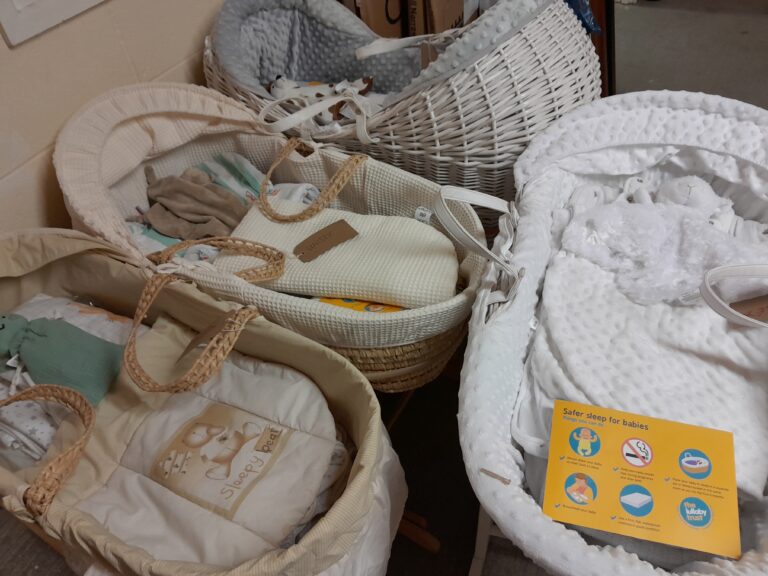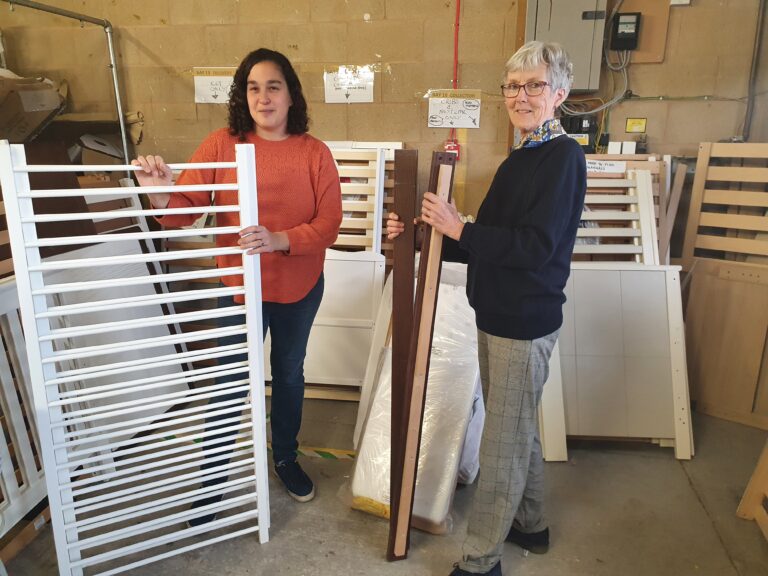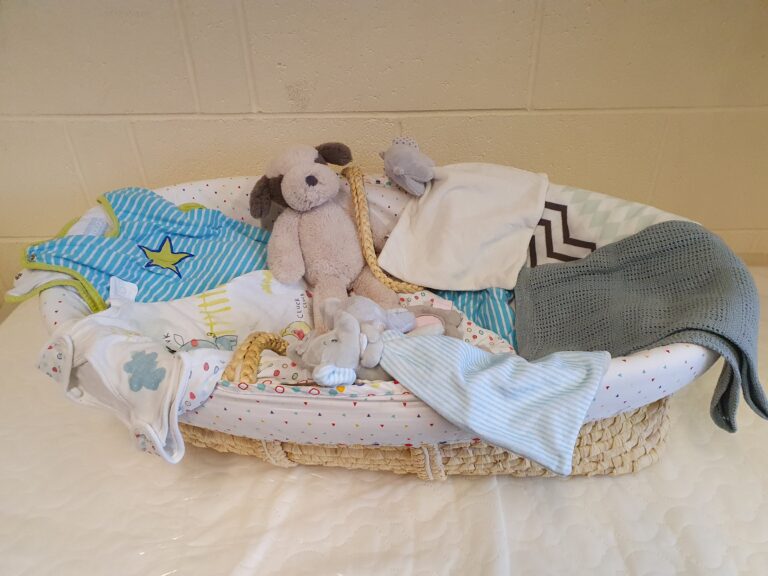Choosing Baby Products for Safer Infant Sleep
A guest blog by Dr. Anna Pease, an expert in safer infant sleep

Moses baskets lovingly packed by one of our volunteers, ready for their new home
Protecting a baby from sudden infant death syndrome (SIDS) while they sleep is something all parents want. The UK has a low SIDS rate compared to other countries, mostly because safer sleep advice has empowered so many families with the right knowledge for how to protect their infants while they sleep. However, SIDS still affects about 170 babies every year so there is always more to be done to help every family give their baby a safe place to sleep. While we can’t prevent every death, there are real things all families can do to reduce the risk.
Sleeping babies have specific needs for safety, especially in the first year of life. They are safest:
– Lying flat on their backs
– With their faces clear
– Close to a sober adult carer
– Not too hot or too cold
– In a smokefree home with smokefree people
There are so many different baby sleep products out there, with many claiming to be “essential”, it can be tricky for new parents to choose. One topic that comes up often is buying new mattresses for cots, cribs and Moses baskets. All mattresses should be firm, flat and in good condition. Overly soft mattresses can trap heat around a baby’s body. Used mattresses, especially if not well cleaned, may carry bacteria or allergens, and although probably not a risk for SIDS, still remain a potential health risk. If a used mattress is being considered it helps to know its history which is why many baby charities won’t accept used mattresses. This is a sensible evidence-based policy, but does increase costs for charities who will need to source new mattresses to support safer sleep for all babies. We also know that babies born into families experiencing the effects of poverty are more at risk, so focusing resources on this group will have the biggest impact on reducing deaths overall.

We buy new mattresses for all cots, cot beds and Moses baskets donated.
Other baby products can be re-used more easily, and many people find it helpful to have more than one baby bed, and put one in the living room, for example. Making sure that baby stays a nice temperature is another important topic for families, so having access to clean bedding including sheets, a sleeping bag, or lightweight blankets that can be tucked in are also essential. Room thermometers can help parents decide what babies need to wear while they sleep, and get advice about checking if a baby is too hot or too cold by placing a hand on their chest or back. The Lullaby Trust is the main charity for infant safety in the UK and makes these same recommendations with more details for families to navigate special circumstances like emergency situations, hot and cold weather, and going on holiday. They also outline very clearly why some baby products are not safe for young babies.
Babies sleep a lot in the first few months of life, and in lots of different places. Co-sleeping or sharing a sleep space with a baby is fairly common, especially bed-sharing where a baby shares a bed with a sleeping adult. Sometimes it’s planned, or parent choice and sometimes it happens by accident. In the UK the advice has always been to acknowledge that co-sleeping happens, explain the things that can make it more risky, and to explain how to bed-share more safely. Again, the Lullaby Trust has great detailed information about co-sleeping, to help families make safe choices, and to plan for all eventualities.
Safer sleep advice has saved thousands of lives in the UK over the last 30 years. Families need evidence-based information from trusted and credible sources, and much of the reduction in deaths has come because of health visitors, midwives, charities and baby banks working together. Consistent messaging and practical support keeps babies safe, and saves lives.
For more information on the Baby Sleep Project, visit their website.

